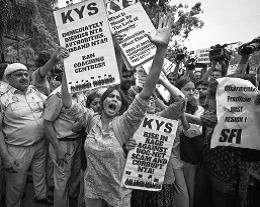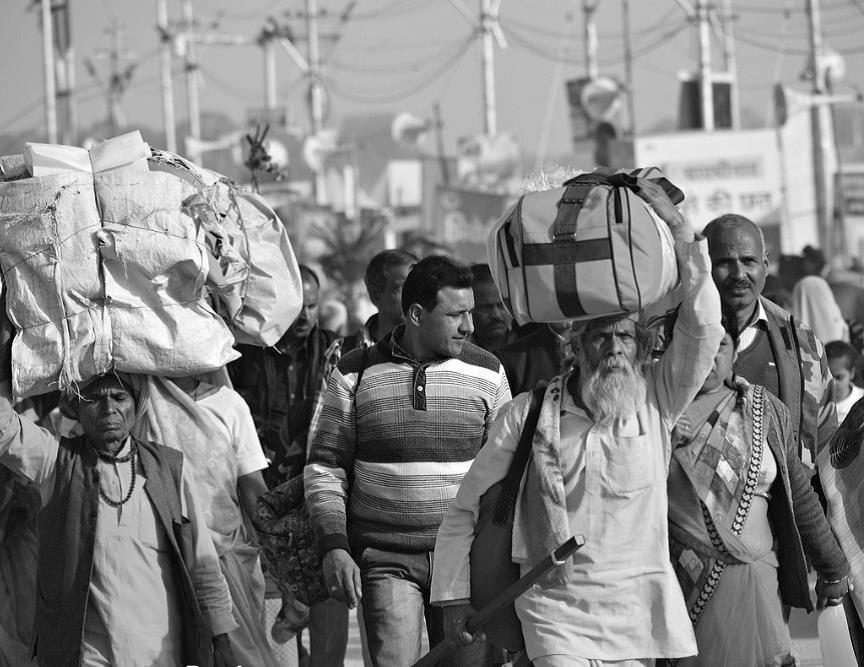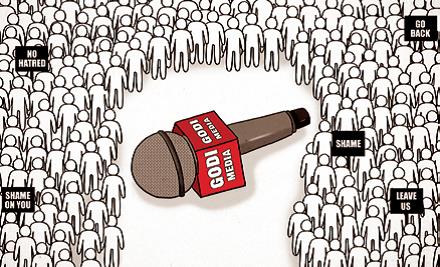.jpg)
Israel cannot afford to ignore realities
The collective decision by Ireland, Spain and Norway to recognize independent Palestinian state should be seen as a setback for Israel and Benjamin Netanyahu’s far-right coalition government. Israel might have reduced Gaza to rubble, but is losing the credibility or whatever remains of it, on the global scene.
And the fact that Hamas is far from being decimated despite passage of around eight months, should be a cause for greater worry. Nor have the Israeli hostages been released from Hamas captivity.
No wonder then that dissonance and differences within the Netanyahu establishment keep rearing their head time and again. It is quite evident that Israel is fighting a war without a clear objective.
The two primary aims of freeing of civilian hostages and military prisoners of war (PoWs) from Hamas and wiping off Hamas have been at odds with each other. Netanyahu’s home constituency is keener to see the hostages freed than Hamas being decimated.
And the Israeli establishment also knows it too well that hostages cannot be brought home unless they engage with Hamas.
While Hamas is still being labelled as terrorist organization by most Western powers, Turkiye President Erdogan recently referred it as ‘liberation organisation’. Moscow too received a Hamas delegation in recent weeks.
On the legal front, Israel faces a case in the International Court of Justice (ICJ) in The Hague and Israeli Prime Minister Netanyahu, his defence minister Yoav Gallant together with Hamas chief Yahya Sinwar face petitions for issue of arrest warrant in the International Criminal Court (ICC) for alleged war crimes.
If indeed arrest warrants are issued against the individuals, their global mobility would be severely curtailed as ICC-member countries would be liable to fulfill the mandate.
Russian President Putin is facing such a warrant. The indiscriminate bombing of Gaza and killing of over 36,000 Palestinians, most of them being women and children, has earned Israel enough infamy for genocidal intentions.
It does make its military superiority evident which however was never in doubt. But now it is being drawn into diplomatic isolation on the global scenario.
While the three European nations have moved towards appreciating the two-state solution only now, its staunchest backer, the United States had called for it in the initial phase of the conflict itself.
There are enough indications from other major European backers such as the United Kingdom, France and Germany that they would not be opposed to considering creation of a Palestinian state, prompted as they are by the damage their international credibility is incurring.
Taken together, Israel will find it increasingly difficult to maintain status quo on ignoring the demand for statehood. In fact, UN Secretary General Antonio Guterres had made it plain at the very start of the present conflict by saying that “Palestinian people have been subjected to 56 years of suffocating occupation and those appalling attacks by Hamas cannot justify the collective punishment of Palestinian people”.
It was only a week ago that Spain refused docking permission to a Denmark-flagged ship carrying ammunition from Chennai to Haifa (Israel). Spain and Belgium have suspended arms export licences to Tel Aviv in the wake of continuing civilian casualties.
A month ago, the Canadian government announced its intention to impose an embargo on all future shipments to Israel, citing grotesque human rights violations.
Killing of seven aid workers from World Central Kitchen convoy following an Israeli airstrike led to a massive uproar in Canada and the US calling for conditioning of military aid to Israel. One of the killed volunteers held a dual Canadian-American citizenship. Human casualties are mounting as the war grinds on.
The global public opinion is bound to consider the twostate solution which Israel’s backers have just begun to acknowledge. Israel too cannot afford to ignore the realities in the long run.
 English daily published in Bengaluru & Doha
English daily published in Bengaluru & Doha

.jpg)

.jpg)
.jpg)

